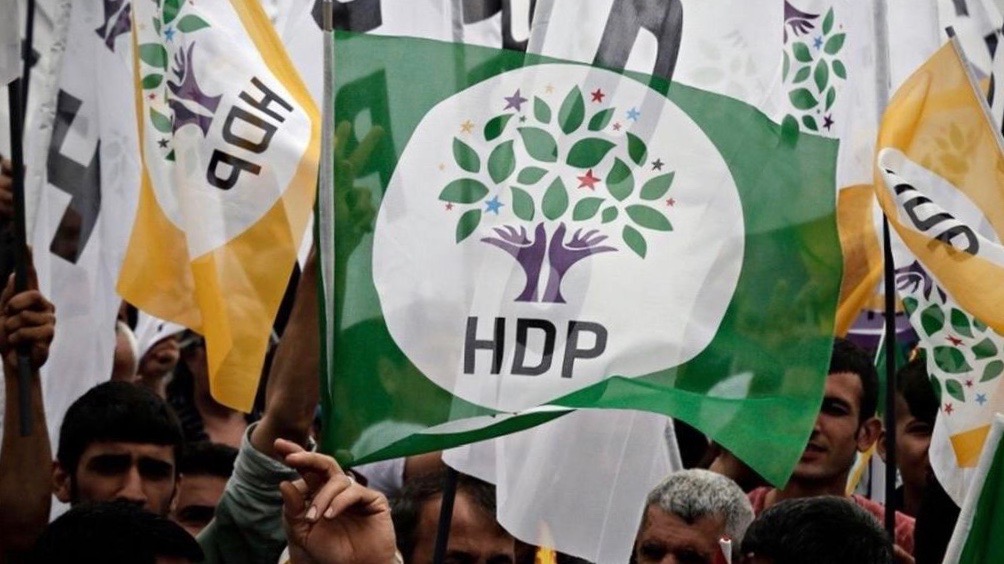The third-largest party in the Turkish parliament, the Peoples Democratic Party (HDP), was temporarily banned from receiving any public funding by the country’s Constitutional Court on Thursday, January 5. The decision is a big blow for the party before the upcoming national elections.
The Constitutional Court, reportedly after a majority vote, decided to suspend the HDP’s access to public funding until a petition to dissolve the party, currently pending in court, is heard next week.
With a strong base among the Kurdish minority in the country, the HDP is considered to be a left-wing party. It won more than 11.7% of the popular vote in the last elections held in 2018, and holds 56 seats in the 600-seat Turkish National Assembly.
The party was slated to receive USD 29 million from the state treasury before January 10, as per Turkish laws that allow for partial funding to political parties that have received more than 7% of the popular vote in the previous election.
The ruling right-wing Justice and Development Party (AKP) and its ally the Nationalist Movement Party (MHP) have accused the HDP of having links with the banned Kurdish Workers Party (PKK) and sought its dissolution.
HDP denies these allegations and alleged on Thursday that the Constitutional Court’s verdict is a result of pressure created by the ruling AKP. It termed the decision a “blatant attempt to undermine fair and democratic elections.”
Constitutional court's decision to block HDP's bank accounts and suspend budget from the treasury, at the behest of AKP-MHP govt, is a blatant attempt to undermine fair & democratic elections. But it won't prevent government's inevitable loss in the upcoming elections. #GaspVar pic.twitter.com/PgU3828cNq
— HDP English (@HDPenglish) January 5, 2023
Political persecution
Elections will be held in Turkey later this year and the ruling AKP is facing a resurgent opposition led by the Republican People’s Party (CHP). The CHP has formed an alliance with other parties and is expected to pose a strong challenge to Recep Tayyip Erdoğan’s two-decade-long rule. However, it is also speculated that the HDP will have a crucial role to play if Erdoğan is to be defeated.
Erdoğan has been accused of persecuting the opposition over the last few years as a way to prevent them from challenging him.
Several of HDP’s MPs have been disqualified from the parliament in recent years over allegations of links with the PKK, which is banned in the country. HDP denies any links with the PKK. It also alleges that its current persecution is less to do with any links to the PKK and more to do with Erdoğan’s fear of facing the party in the upcoming elections
The PKK, founded in 1980, has campaigned for the rights of the Kurdish minority in Turkey. It has, however, also been accused of carrying out an armed struggle against the state with the objective of dividing the country.
According to Bianet, the Turkish state has banned at least seven pro-Kurdish parties since the 1990s, apart from two that dissolved themselves following state persecution.
Moves to limit the opposition have not only been used against the HDP. Earlier last month, Istanbul Mayor Ekrem İmamoğlu, of the CHP, was sentenced to two and half years in prison for allegedly disrespecting the Supreme Electoral Council. If the sentence is implemented, it will prevent İmamoğlu from contesting the next elections. He was considered a lead candidate to run against Erdoğan.
This move has been criticized by every major opposition party in Turkey. The CHP described the verdict as illegal, as it was not taken by the required two-third majority of judges.
The Turkish Communist Party (TKP) called it “bullying by the AKP,” claiming that the ruling party was “using public resources” to unleash oppression on its political opponents.





